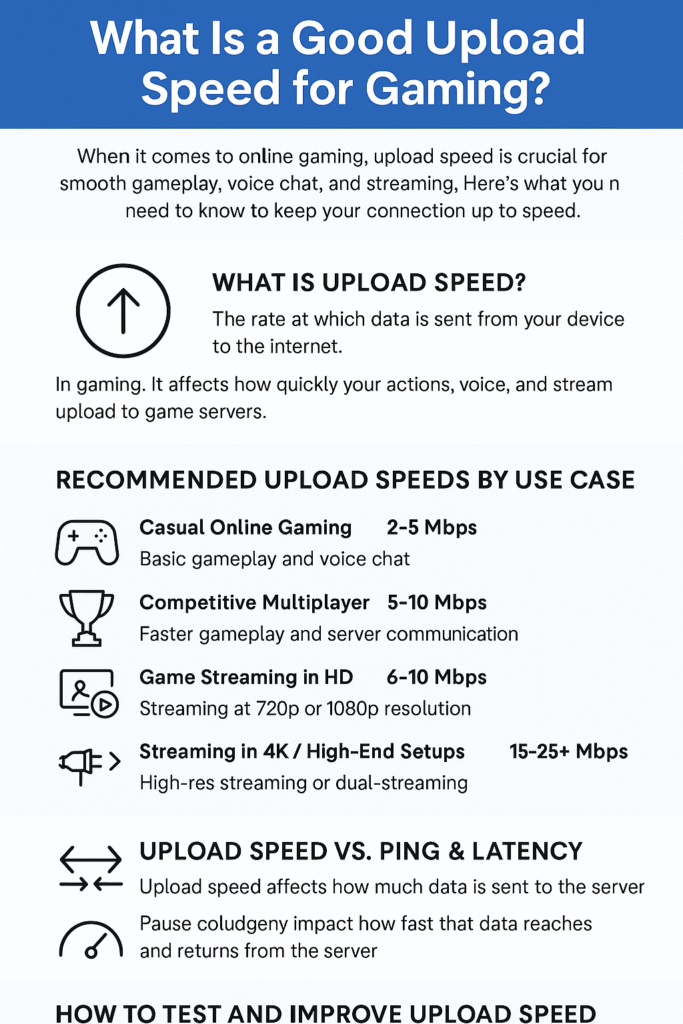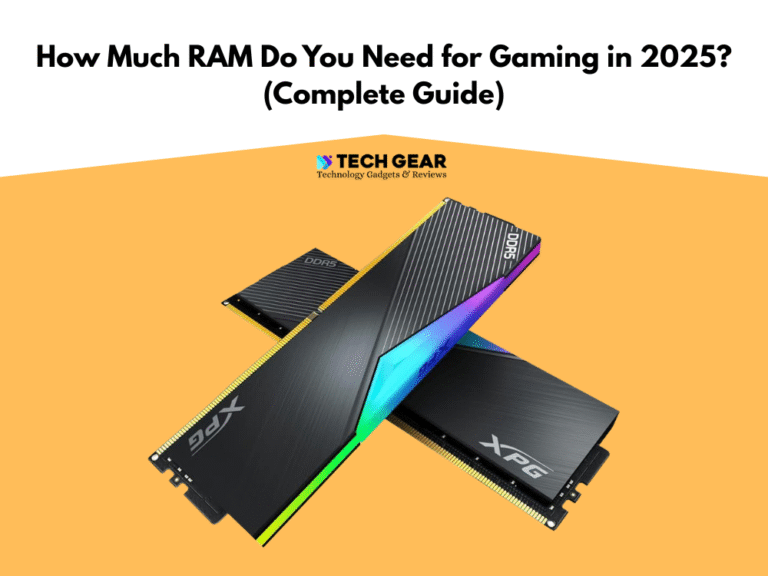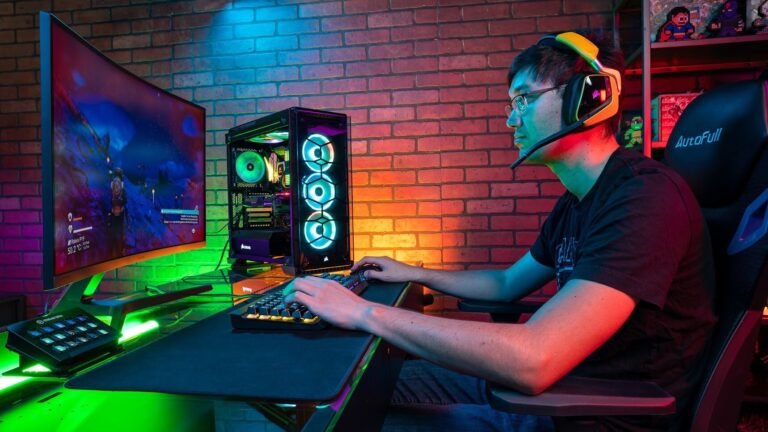What is a Good Upload Speed for Gaming? (2025 Guide)
When it comes to online gaming, most players focus on download speed but your upload speed plays a crucial role too. Whether you’re playing competitive multiplayer, using voice chat, or streaming your gameplay on platforms like Twitch or YouTube, a strong and stable upload connection can make all the difference.
So, what is a good upload speed for gaming? In this guide, we’ll break down what upload speed really means, why it matters, and how much you actually need for different types of gaming — from casual play to high-performance live streaming.
What Is Upload Speed?
Upload speed refers to how quickly data travels from your device to the internet. In gaming, this means how fast your console or PC can send information — like your in-game actions, voice chat, or stream feed — to game servers or other players. It’s measured in megabits per second (Mbps), and while download speed is important for loading games and updates, upload speed becomes essential for real-time responsiveness, multiplayer communication, and broadcasting your gameplay online.
Why Upload Speed Matters for Gaming
Upload speed plays a critical role in your online gaming experience, especially when it comes to real-time interaction. In multiplayer games, your system constantly sends data to game servers — such as your character’s movement, actions, and voice chat — to keep everything in sync. A slow upload speed can cause lag, delayed responses, or even disconnects, which are especially frustrating in competitive matches.
If you’re a content creator or streamer, upload speed becomes even more important. Streaming gameplay to platforms like Twitch or YouTube Live requires steady upload bandwidth to maintain video quality without buffering or dropped frames. Even if you’re not streaming, features like cloud saves, voice chat, and team communication all rely on your upload connection working smoothly.
Recommended Upload Speeds by Use Case

The ideal upload speed for gaming depends on what you’re doing. Casual players may not need much, but if you’re streaming or competing at a higher level, you’ll need more bandwidth and stability. Below are general recommendations based on common gaming scenarios:
-
Casual Online Gaming (2–5 Mbps):
Most online games like Fortnite, Call of Duty, or FIFA only require a small amount of upload speed for basic gameplay and voice chat. -
Competitive Multiplayer (5–10 Mbps):
For smoother real-time gameplay, faster server communication, and voice chat, a bit more bandwidth helps reduce lag and improve stability. -
Game Streaming in HD (6–10 Mbps):
If you stream your gameplay in 720p or 1080p on Twitch or YouTube, a solid upload connection is essential for a clean stream with minimal drops. -
Streaming in 4K / High-End Setups (15–25+ Mbps):
For 4K resolution or dual-stream setups (game + webcam), you’ll need a high-speed plan to maintain video quality and prevent frame skipping.
Keep in mind that these are minimum suggestions faster upload speeds can provide better consistency, especially in households with multiple devices or users online at the same time.
Upload Speed vs. Ping & Latency
While upload speed is important, it’s not the only factor that affects your gaming performance. Ping and latency often have a bigger impact on gameplay, especially in competitive or fast-paced environments.
May You Like: What Is a Good Ping for Gaming?Ping refers to the time it takes for data to travel from your device to the game server and back, measured in milliseconds (ms). Latency is essentially the same — it’s the delay between your input and the server’s response. Even if you have a high upload speed, high ping can result in lag, rubber-banding, or delayed actions during gameplay.
That’s why gamers often prioritize a low-ping connection over raw speed. A stable, wired connection and proximity to the game server can significantly improve latency, often more than simply increasing your internet speed.
In short, upload speed affects the amount of data sent, while ping and latency affect how fast that data gets there — both are critical for smooth online gaming.
How to Test Your Upload Speed
Testing your upload speed is quick and easy — and it helps you understand if your connection is strong enough for gaming. To get started, use trusted tools like Speedtest.net, Fast.com, or Google’s Internet Speed Test. These services measure both your upload and download speeds in megabits per second (Mbps), along with your ping.
For the most accurate results:
-
Use a wired Ethernet connection instead of Wi-Fi.
-
Close background apps and pause any active downloads.
-
Run multiple tests at different times of day to spot inconsistencies.
-
Compare your results with the recommended speeds for your gaming needs.
If your upload speed is significantly lower than what your internet plan offers, it may be time to optimize your setup or contact your provider.
How to Improve Your Upload Speed
If your upload speed isn’t meeting your gaming needs, there are several ways to improve it without switching providers right away. Even small changes to your setup can make a noticeable difference in performance.
-
Use a Wired Connection:
Ethernet connections are far more stable and faster than Wi-Fi. Switching to wired can instantly reduce interference and improve upload consistency. -
Upgrade Your Router or Modem:
Older equipment can bottleneck your connection. Look for a modern router that supports higher upload throughput and Quality of Service (QoS) settings. -
Limit Background Uploads:
Cloud backups, file sharing, or streaming on other devices can eat up bandwidth. Pause or schedule these tasks while gaming. -
Optimize QoS Settings:
Some routers let you prioritize gaming traffic to ensure your connection remains stable even with other users online. -
Talk to Your ISP:
If your current plan doesn’t offer enough upload speed, consider upgrading or switching to a provider that offers fiber or higher-tier plans.
Improving your upload speed not only benefits gaming, but also enhances video calls, live streaming, and overall network responsiveness.
What to Do If Your Upload Speed Isn’t Good Enough
If your upload speed is consistently falling short, even after optimizing your setup, it may be time to take further action. A weak upload connection can seriously impact gaming, streaming, and online communication — but the good news is, you have options.
- Check your internet plan. Many basic plans focus on download speeds and offer very limited upload capacity. Upgrading to a higher-tier plan or switching to a provider with better upload speeds (such as fiber-optic internet) can make a big difference.
- Run diagnostics and contact your ISP. If your speeds are lower than promised, your provider may be able to identify line issues or send a technician to resolve the problem.
- Consider your environment. Too many connected devices, poor signal strength, or outdated wiring can all contribute to poor performance. Minimizing network congestion and upgrading your hardware may help.
- Explore gaming-specific ISPs or plans. Some providers offer low-latency or gaming-optimized packages designed to improve ping and speed performance for gamers.
Ultimately, a reliable upload connection is key for a smooth online experience — and making the right adjustments can save you from lag, disconnects, or dropped streams.
Final Thoughts
Upload speed may not get as much attention as download speed, but it plays a crucial role in your overall gaming experience. Whether you’re playing casually, competing online, or streaming to a live audience, a strong and stable upload connection ensures your actions are transmitted smoothly and in real time.
For most gamers, an upload speed of 5–10 Mbps is sufficient, but if you’re streaming in high resolution or running multiple devices, you’ll benefit from even more bandwidth. Just as important as speed, low ping and reliable latency help eliminate lag and keep gameplay responsive.
The best way to stay ahead? Test your connection regularly, optimize your setup, and don’t hesitate to upgrade when needed. With the right upload speed and a stable connection, you’ll enjoy faster, smoother, and more competitive gaming — every time you log on.


